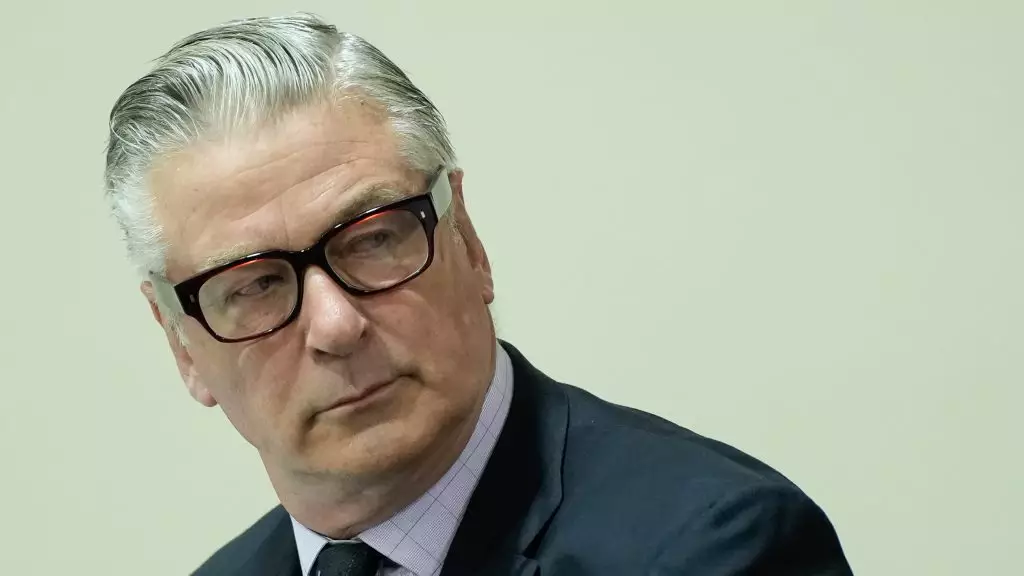When a high-profile incident occurs, especially one that leads to loss of life, the repercussions can reverberate through not only the lives of those directly involved but also through the fabric of public opinion and media representation. In the aftermath of the tragic Rust shooting involving cinematographer Halyna Hutchins, actor Alec Baldwin finds himself navigating a complex landscape of legal challenges, personal turmoil, and an unwavering desire to set the record straight. Although the involuntary manslaughter case against him was dismissed in July 2023, Baldwin’s journey toward vindication is far from over. His intention to expose the truth behind what transpired on the New Mexico set speaks to the larger narrative of accountability, media influence, and the pursuit of justice.
Since the incident, Baldwin has openly expressed feelings of being cornered by a media frenzy that he believes has mischaracterized his role in the event. He describes a climate where news outlets have purportedly suppressed stories that could be favorable to him while amplifying narratives that construct him as a villain. The power of the media in shaping public perception is indisputable; a single headline can overshadow years of nuance. Baldwin’s claim that the press has strategically influenced the narrative poses questions about the ethics of journalism, especially when reporting on sensitive issues where individuals are not just public figures but also human beings grappling with unimaginable circumstances.
Baldwin’s frustration culminates in his observation that those who harbor animosity toward him seem to seek one of three outcomes: death, incarceration, or professional eradication. This sentiment underlines the intensely polarized atmospheres that embroil public figures facing controversy. The narrative often becomes a spectacle, wherein the individual’s humanity is obscured by the demand for retribution or spectacle. As Baldwin prepares to reveal what he terms “critical evidence,” he highlights a desire to shift the narrative and regain his autonomy amidst a storm of judgment.
The Legal Labyrinth and Future Considerations
The legal battles surrounding Baldwin have been fraught with complications and unexpected turns. The dismissal of charges against him came as a relief, but Baldwin asserts that the larger truth remains unexamined due to the absence of a full trial. He believes that the dismissal does not absolve him of the public and personal scrutiny he has faced. Rather, it has propelled him into a “next phase” of his journey—an initiative to present the facts as they stand, fortified by his legal team’s repository of evidence. This is not merely about preserving one’s reputation; it’s about ensuring accountability and understanding the facets of the tragic event.
As we look to the future, Baldwin’s expression of gratitude for the dismissal coexists with a measure of dissatisfaction—highlighting the complexities of public and legal redemption. In a legal environment that can often feel adversarial, the quest for truth becomes entwined with an individual’s need for validation and justice. Baldwin’s intention to initiate further legal proceedings in order to illuminate the circumstances of Hutchins’ death showcases not just his unyielding commitment to uncovering facts, but also a readiness to confront the fallout of a divided public, which sometimes equates vilification with justice.
The emotional toll stemming from the Rust shooting is profound, impacting not only Baldwin but the countless individuals affected by the event. As Baldwin prepares to “take a break” from the public eye, his desire for a moment of respite implies an understanding of the weight he carries both personally and professionally. Exhaustion can manifest in various ways, and even those in the limelight require a sanctuary of sorts to regain mental clarity and emotional stability.
In his forthcoming narrative, Baldwin shows a willingness to twist the lens back to the situation, reminding audiences that amidst media dramatizations and fervor, there lies a real human experience tinged with grief and loss. His journey illuminates the increasingly important conversations surrounding media ethics, accountability, and the right to share one’s narrative without the overshadowing weight of public perception. The coming months are poised to be critical for Baldwin as he aims to redeem his story and clarify a troubling chapter in his life, reaffirming the idea that every side deserves to be told, understood, and acknowledged.

